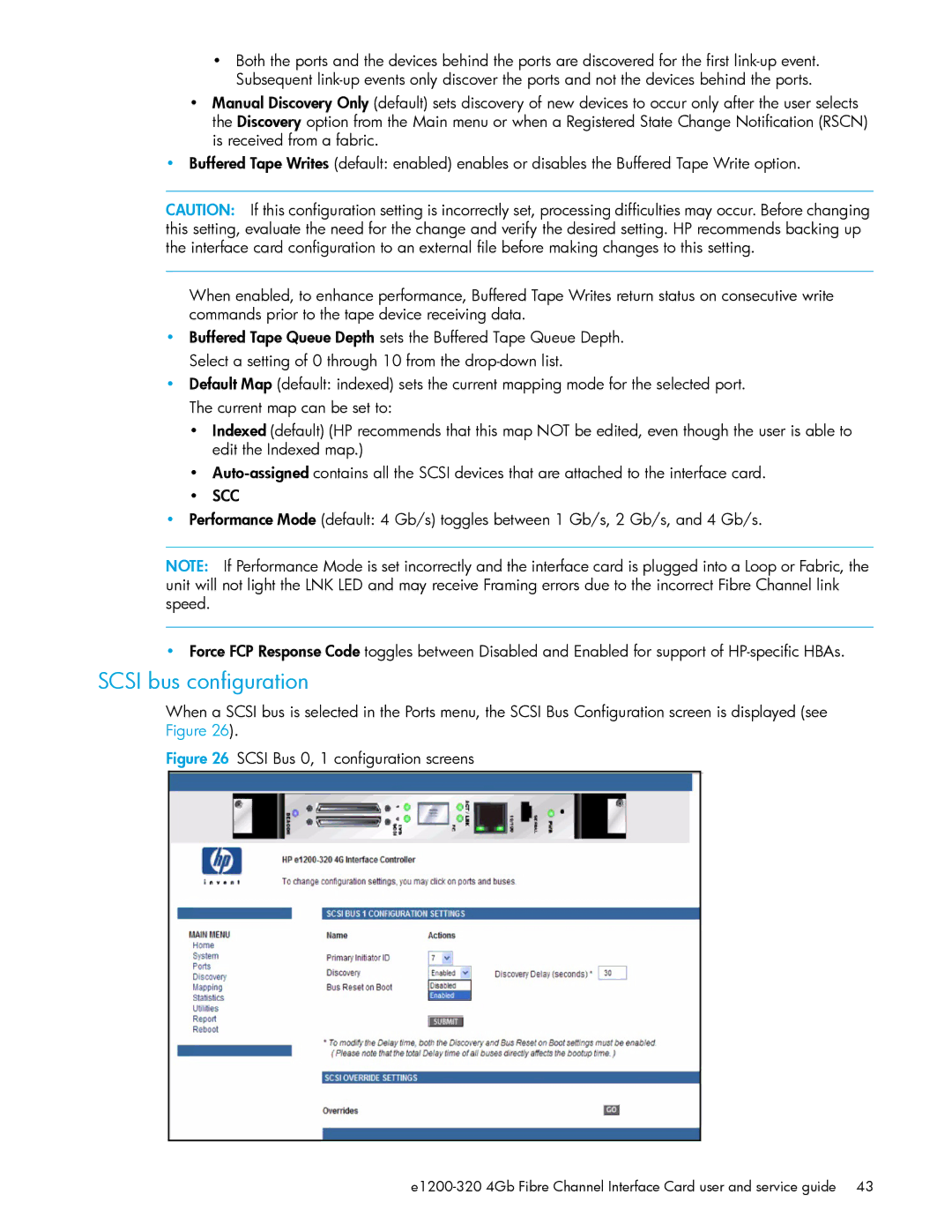
•Both the ports and the devices behind the ports are discovered for the first
•Manual Discovery Only (default) sets discovery of new devices to occur only after the user selects the Discovery option from the Main menu or when a Registered State Change Notification (RSCN) is received from a fabric.
•Buffered Tape Writes (default: enabled) enables or disables the Buffered Tape Write option.
CAUTION: If this configuration setting is incorrectly set, processing difficulties may occur. Before changing this setting, evaluate the need for the change and verify the desired setting. HP recommends backing up the interface card configuration to an external file before making changes to this setting.
When enabled, to enhance performance, Buffered Tape Writes return status on consecutive write commands prior to the tape device receiving data.
•Buffered Tape Queue Depth sets the Buffered Tape Queue Depth. Select a setting of 0 through 10 from the
•Default Map (default: indexed) sets the current mapping mode for the selected port. The current map can be set to:
•Indexed (default) (HP recommends that this map NOT be edited, even though the user is able to edit the Indexed map.)
•
•SCC
•Performance Mode (default: 4 Gb/s) toggles between 1 Gb/s, 2 Gb/s, and 4 Gb/s.
NOTE: If Performance Mode is set incorrectly and the interface card is plugged into a Loop or Fabric, the unit will not light the LNK LED and may receive Framing errors due to the incorrect Fibre Channel link speed.
•Force FCP Response Code toggles between Disabled and Enabled for support of
SCSI bus configuration
When a SCSI bus is selected in the Ports menu, the SCSI Bus Configuration screen is displayed (see Figure 26).
